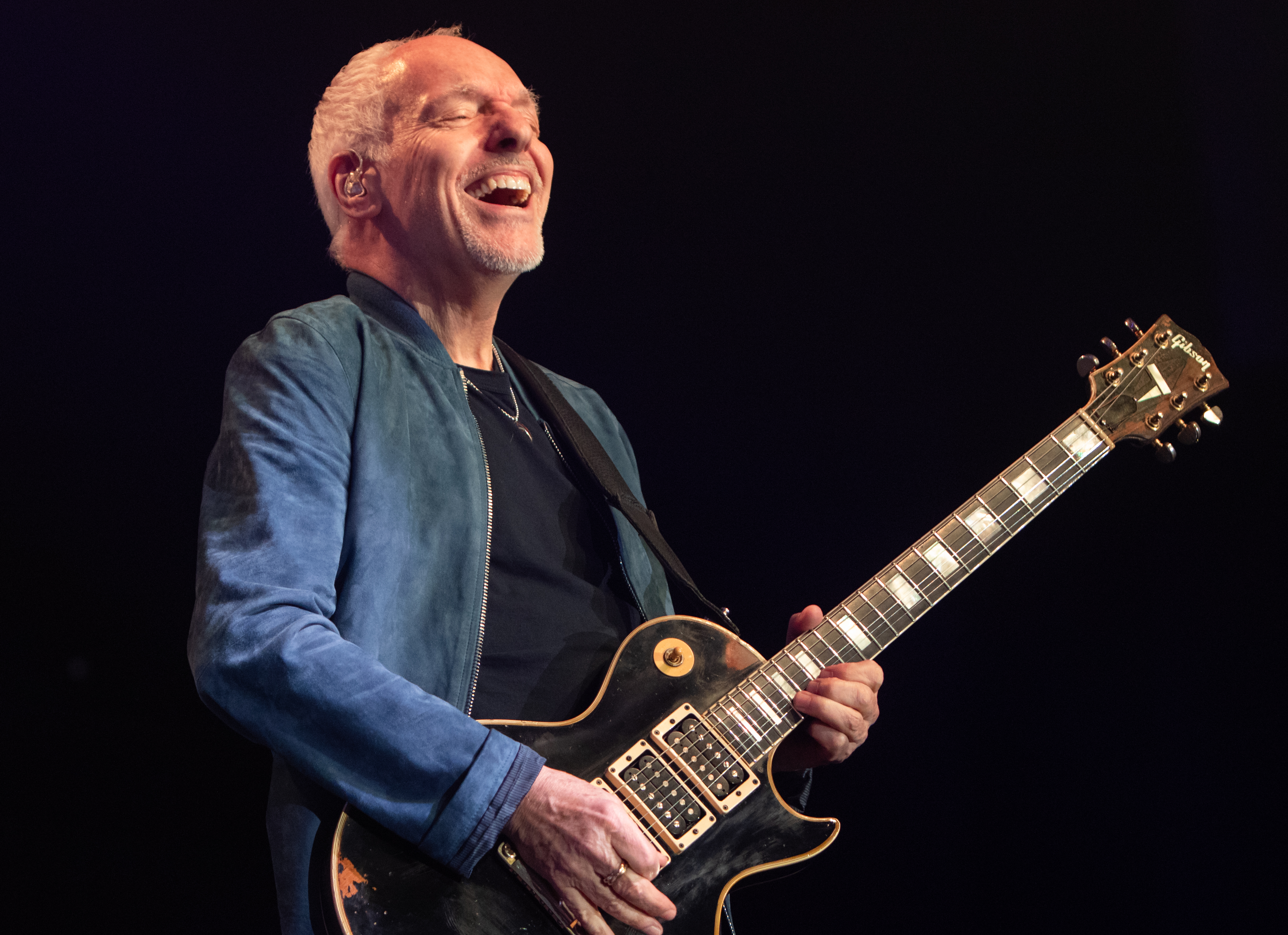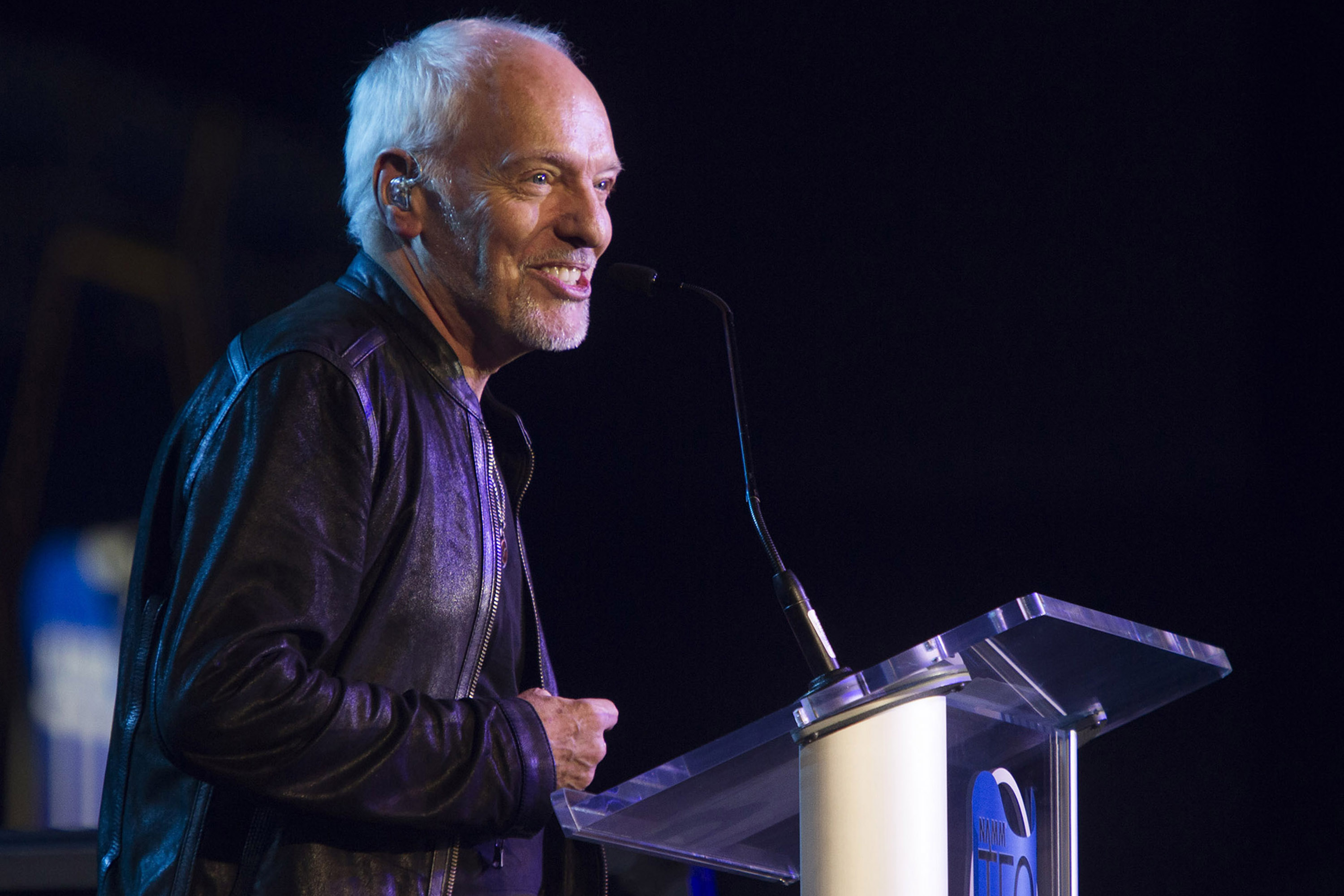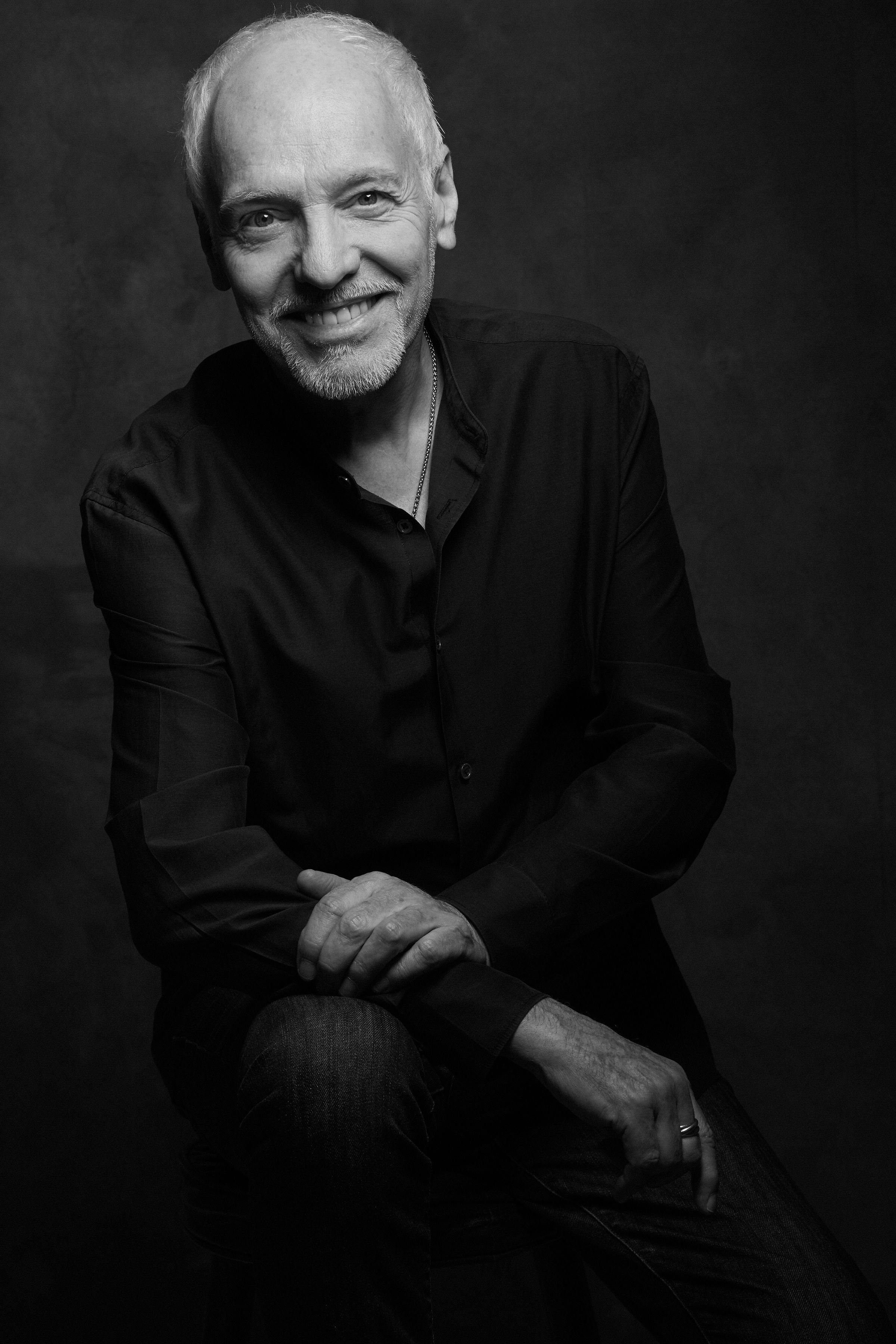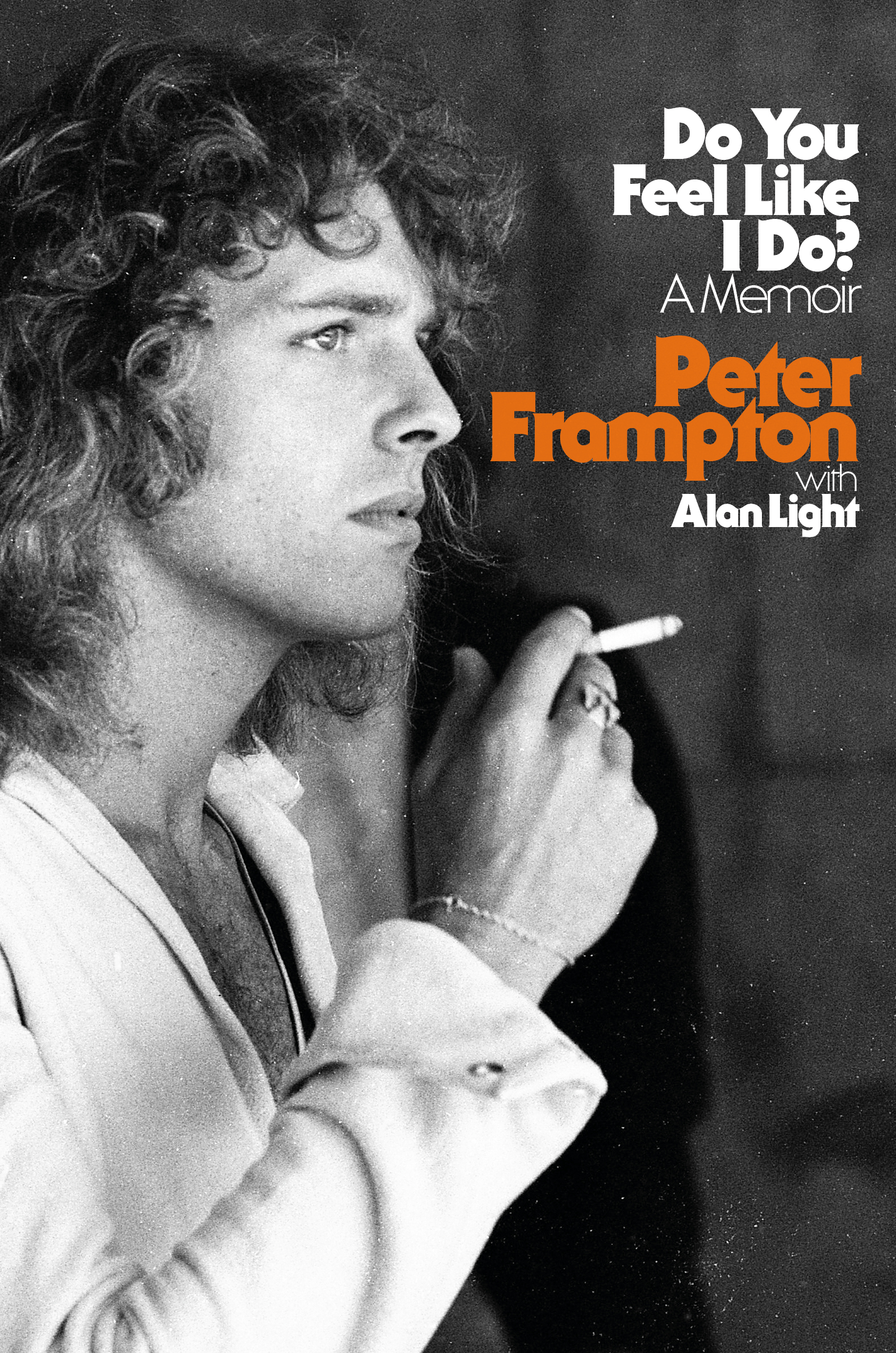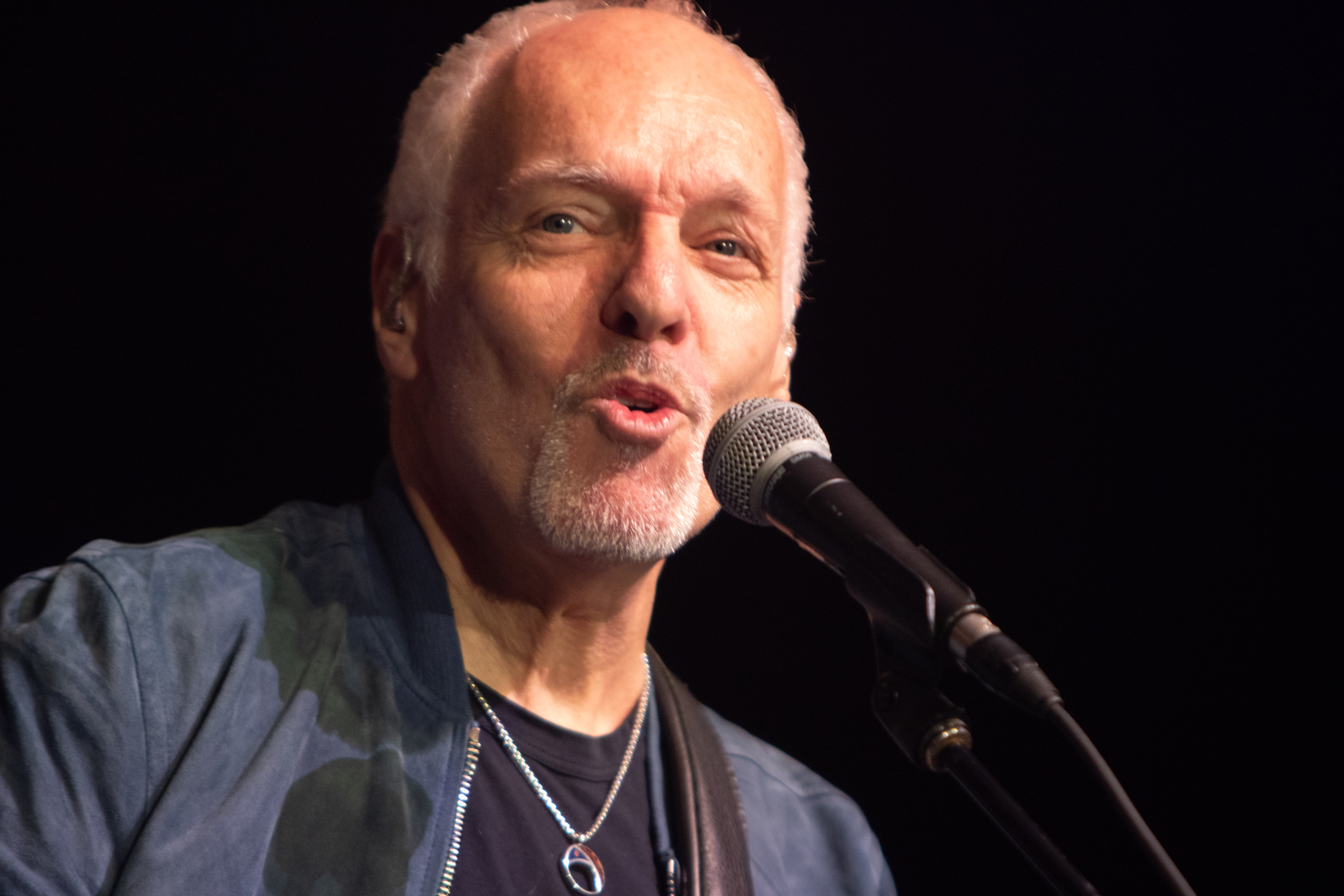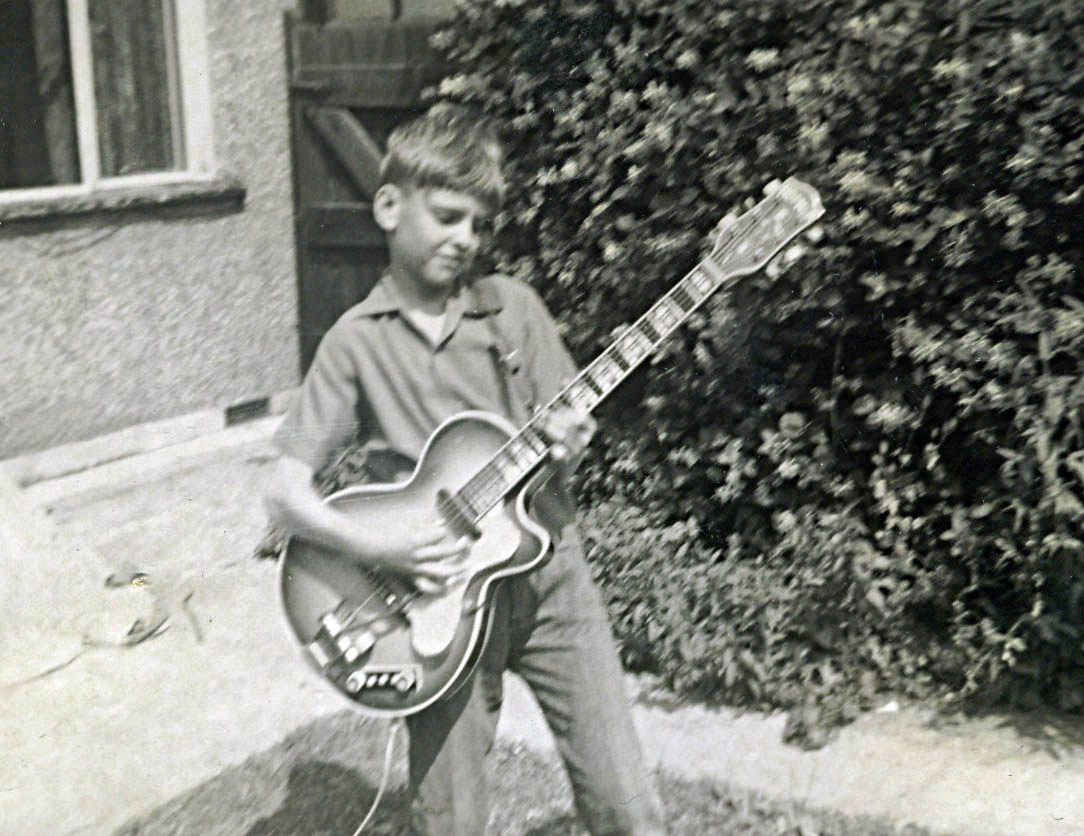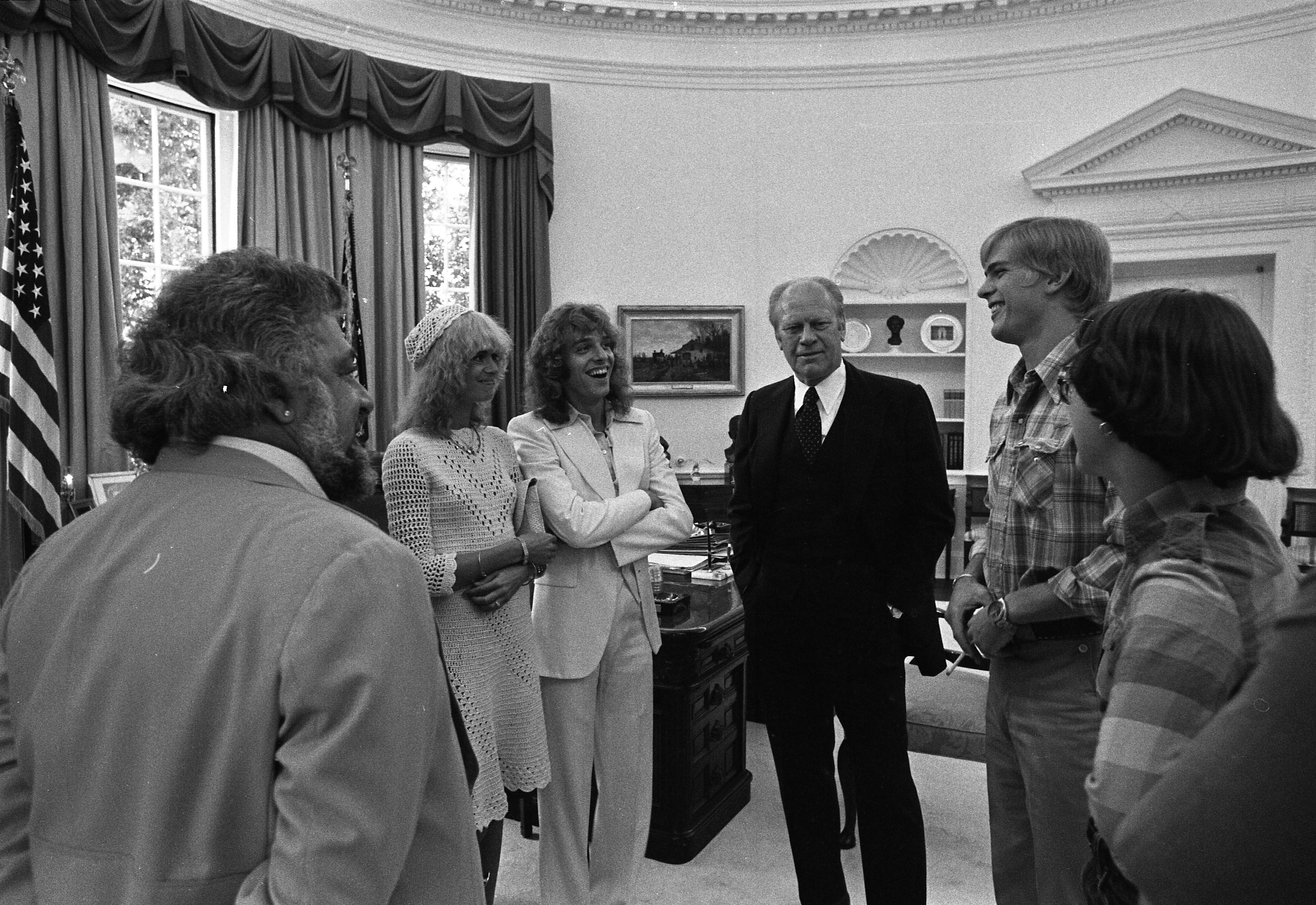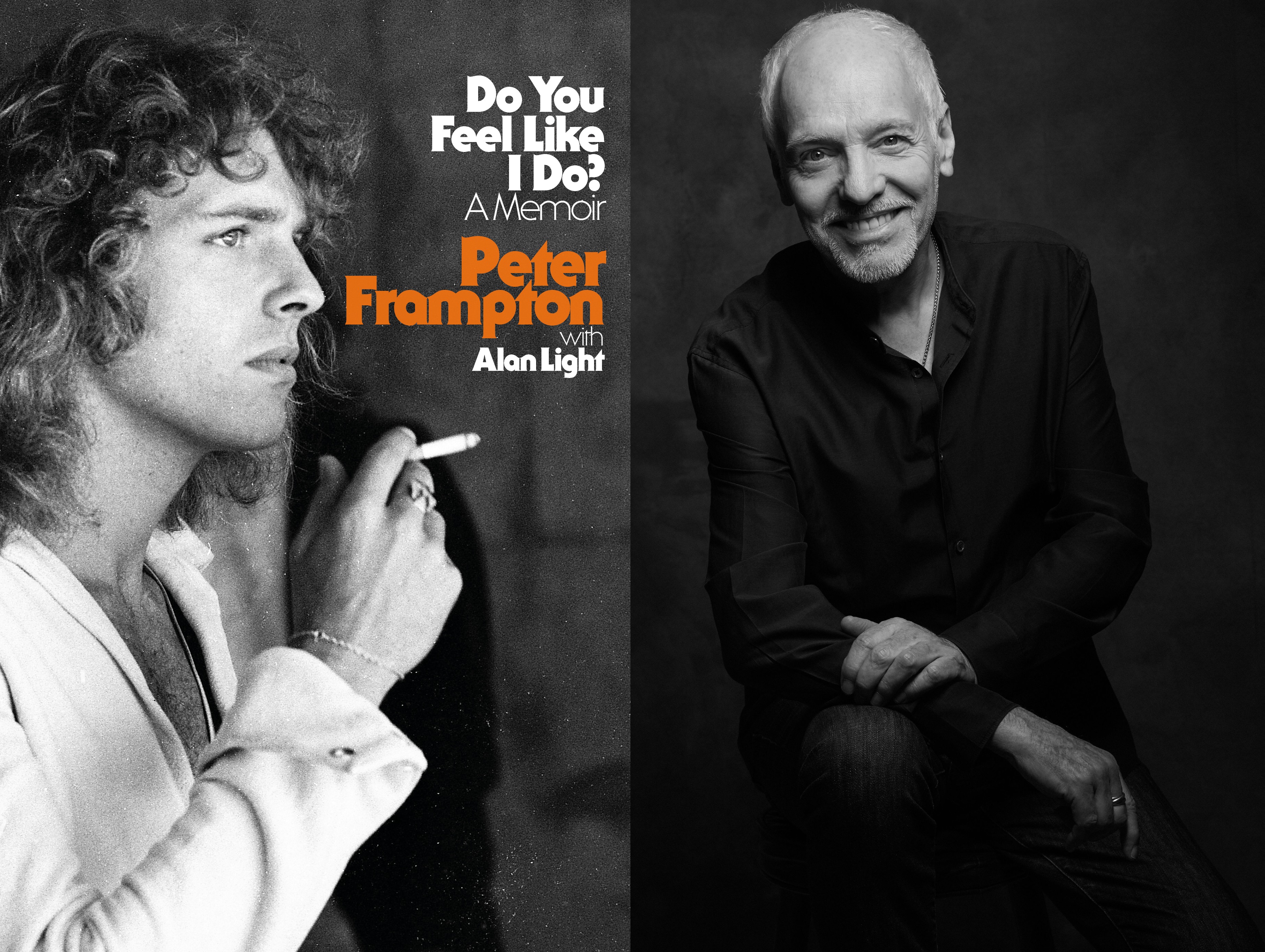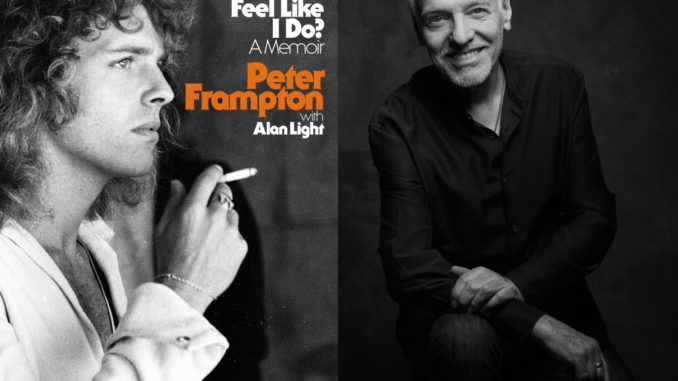
For Peter Frampton, the idea of a memoir was always on his list of things to do, but never today, not this year, that’s for the future.
Frampton definitely had stories to tell just from his youth on the outskirts of London: He was friends with David Jones (soon to be known to the world as David Bowie); his teenage rock band was produced by Bill Wyman of the Rolling Stones; he played in another teen band that toured with The Who.
And the stories kept coming: When he was 18, he joined Steve Marriott of the Small Faces to form the supergroup Humble Pie. By the time he was 20, he was playing on George Harrison’s post-Beatles solo debut, “All Things Must Pass.” Two years after that, Beatles drummer Ringo Starr played on Frampton’s own 1972 solo debut.
And then in 1976, his album, the iconic double live set “Frampton Comes Alive!” shot to No.1 on the charts on its way to selling 8 million or so that year.
But a book? “Not now,” he recalls telling his manager.
Then, in early 2019, he revealed his diagnosis with inclusion body myositis, a progressive muscle disease that would eventually take away his ability to make music.
“When I got diagnosed with IBM, I could see, obviously, I had a time limit here on being able to play guitar,” Frampton, 70, says from his Nashville home. “Which is not a great feeling.
“Luckily, my IBM is one of the slower ones, so I’m very lucky that I still can play,” he says. “But at that time I thought, ‘I might be taking a break soon. This might be the time to write the book.’”
The book, “Do You Feel Like I Do?” borrows its title from one of Frampton’s biggest hits, “Do You Feel Like We Do.” It arrives on Tuesday, Oct. 20 with a virtual book event sponsored in Los Angeles by Book Soup, which presents Frampton in conversation with his longtime friend, the filmmaker and writer Cameron Crowe.
Written in the same warm, optimistic voice as he has on the phone, “Do You Feel Like I Do?” was written mostly during 2019 during Frampton’s farewell tour, which he was still on when the Covid pandemic shut everything down earlier this year.
“It all sort of came at the same time,” he says. “It’s like, ‘OK, let’s write; let’s get the book on go. We started on the finale, and finished on breaks in the tour.”
The musical prodigy
“I have very vivid memories,” Frampton says of the months he spent mining the past for the book. “It was, obviously, a mixture of pain and pleasure, going back. Life was much, much simpler when I started playing the banjolele and then the guitar in ’57-’58.
“The early times are obviously very pure times,” he says.
He credits his mother and father for providing him the love and support he needed to flourish, as well as teaching him the resilience he’d need later in life.
“My mother went through the Blitz (the bombing of London during World War II), my dad went through every major battle in Europe and Africa, and they survived. That’s why I’m able to pick myself up.”
Coming alive
Humble Pie introduced Frampton to America, thanks to their management’s decision to put them on the road as much as possible. It also set a pattern for his future stardom: That band’s live album, honed from months on the road, was its biggest success during his time in the band.
In the book, he doesn’t shy from mistakes made — drugs eventually show up, and there are broken relationships for which he accepts his share of the responsibility.
These years, though, are mostly filled with stories of his amazement at the things life delivered — meeting the Beatles, having Stevie Wonder to play on his record and enjoying the overwhelming adulation that comes with peak rock stardom.
And then things shift, suddenly, and badly. First, “I’m In You,” the follow-up to “Comes Alive!” sells a ton but is widely viewed as an artistic disappointment. Then the 1978 movie “Sgt. Pepper’s Lonely Hearts Club Band” in which Frampton starred alongside the Bee Gees is a huge flop.
“They were not great times to go through,” Frampton says of those chapters in his life and his book. “You know, the (stuff) hit the fan and I slipped down the ladder rather quickly.
“But I realized that it made me what I am today,” he says. “It’s all part and parcel of a career.”
What he learned
Writing the memoir brought buried thoughts and feelings to the surface, Frampton says. He traced one back to the title track on his solo debut “Wind Of Change.”
“There were a lot of realizations, but the main one for me is that in the song, ‘Wind Of Change,’ I sing in the chorus, ‘Faking my way through,’” Frampton says. “And I’ve always — even as good as I was as a player — I’ve never thought I was good enough.
“And that — over and over in the book you read — I come back to that and say, ‘Oh, god, I just don’t feel good enough, I’ve just got to be better,’” he says. “That’s what’s driven me.”
In the fallow years of the early ’80s before a slot as the opening act for Stevie Nicks, and then a run as Bowie’s lead guitarist on the Glass Spiders Tour, that sense of coming up short held him back, Frampton says.
“Because I just felt, ‘Well, there you are, not good enough,’” he says. “But then I realized that it’s because of that (insecurity). Because of my parents and just my character, I never give up. Even as someone who suffers with depression, I’m still an optimist.”
“Even with my IBM, you know, taking away my muscles slowly but surely, my journey is to bring awareness, which will raise money for a (little-known) disease.”
By the time the farewell tour ran into the pandemic lockdown, it had raised more than $300,000 for Johns Hopkins where researchers are working to better understand the disease, Frampton says.
Turn the page
The virtual book event reunites Frampton with Crowe, who was a very young rock writer in the ’70s — maybe 16 — when Frampton first met him.
“He did the liner notes (for ‘Comes Alive!’),” Frampton says. “He was the first person that heard it other than the band and management and record company.”
When Crowe called to pitch him a job on “Almost Famous,” his semi-autobiographical 2000 movie, Frampton says he was there in an instant. Well, almost an instant.
“We’d always spoken about how we hated rock movies, and then he called me and said, ‘I’m making a rock movie,’” Frampton says. “And I said, ‘No, you’re not. We don’t like rock movies.’”
Crowe convinced him, though, and Frampton appears not only on screen as Humble Pie’s manager, but also worked as the authenticity consultant, making sure everything was right for a rock show set in the ’70s.
The road ends
Frampton plans to release an album of instrumental covers next year, and he’s got another blues album and one of original material in the pipeline. But touring likely ended with the farewell run.
“Obviously, it was bittersweet,” he says. “We all knew that. But we just knew it had to be the best ever. If I’m going to go out, I’m going to out with a bang.
“And so I have to say that the sweet part outweighed the bitter,” Frampton continues. “I am a performer. I have been all my life. And my biggest enjoyment of what I do is playing live.”
At the end of each night on stage, Frampton appeared on stage alone, giving him one last moment with the fans.
“When it was just me left on stage and I was waving but not saying goodbye,” he says. “Thanking them for the love. It was palpable, the feeling at the end of the show, and it’s something that I treasure, those memories.
“Because those were true fans, and they were there hoping they’d see me again, but maybe they wouldn’t. They were there for me when I needed them. That was so wonderful.”
Peter Frampton in conversation with Cameron Crowe
What: Frampton talks about his new memoir “Do You Feel Like I Do” in conversation with Cameron Crowe
When: 4 p.m. Tuesday, Oct. 20
Where: Online
How much: $40 which includes a copy of the book, a signed bookplate for the first 200, and a few other goodies.
For more: Go to Booksoup.com/event for information and link to purchase tickets.
